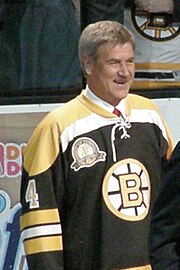Boston, May 1995. The last days of my clinical fellowship were like a heavily loaded lorry driving up a steep hill. I was emotionally exhausted and physically drained—one needed a lot of moonlighting to survive in Boston. I was also preoccupied with thoughts of my research transition into the high-power genetics lab.
Shaun was sad and angry. He had leukemia and aspergillosis. Only 14 years old, Shaun had no visitors. As the days passed, he slipped more and more into a depressive defiance of his caregivers. I felt sorry for Shaun but found little time for him as I struggled to get through my busy day—a Sisyphean task of endless consults, follow-ups, sign-offs, and more consults. But one day, I lingered at Shaun’s bedside. I had seen his eyes wet and asked him why he was so down on that particular day.
He said simply, “Doc, nothing’s going well in my life, and to top off everything, the Bruins lost last night.” This was a thread for communication between a sick teenager and a busy clinician.
Are you a Bruins fan?” I asked.
“Big time,” he replied. “I miss the days when I went to the games with my friends.”
A flash of an idea came to my mind.
“So, Shaun, if I bring you a big Bruins player, will that cheer you up?”
“Oh yeah, who are you going to bring me? Bobby Orr?” he said sarcastically.
Who’s Bobby Orr? I thought to myself. My European upbringing and lack of knowledge about ice hockey made me appear alien when I asked that question to the secretary in the infectious diseases department.
“What’s wrong with you?” she replied with her heavy Boston accent—almost as heavy as my Greek one. “You don’t know about Bobby Orr? He’s a legend here in Boston.”
“Well, find his number for me, please,” I asked.
But, when I called him, he was in Canada. I left a message with his secretary explaining the situation and my request.
Three weeks passed. I had forgotten all about Bobby Orr. Shaun remained hospitalized, as depressed as ever.
It was around noon on Memorial Day weekend, I remember. I was on call and very busy when I received an outside number on my beeper. I called back.
“Doc, this is Bobby Orr. Sorry I am late getting back to you, but I was out of the country. How can I help you?” I was stunned and pleasantly surprised. I started explaining Shaun’s situation with increasing excitement.
“Doc,” he said. “You talk too much. Tell me where Shaun is, and I’ll be there in an hour.” Shaun was scheduled to have a CT done on that day, but he had refused it. He lay in bed curled up, disheveled. I canceled the CT and asked the nurses to ready him for a surprise visitor.
Bobby Orr came in, loaded with posters of the Bruins. The nurses’ station buzzed, and I began to sense just how great a legend this man was. Bobby stayed with Shaun for over an hour, one on one, on that Memorial Day weekend afternoon. They talked and shared stories about hockey. Shaun was the happiest that I had ever seen him—all big smiles, living a dream. I was incredibly moved. Eyes wet, I proceeded to thank Bobby Orr. He looked like a battled, proven warrior, scarred and tough.
“Thank you, Mr. Orr. I will never forget what you did today for that kid.”
“No. Thank you, Doc.” His eyes were also wet.
Shaun died a month later of relapsed leukemia. I moved on with my career, pursuing my profession while also trying to keep up with a busy family life. I never saw Bobby Orr again, but I’ll never forget the great generosity of this legend and the immense effect he had on Shaun’s life—and mine.
- Dimitrios P. Kontoyiannis, MD, ScD
+ Author Affiliations
From The University of Texas M.D. Anderson Cancer Center, Houston, TX 77030.
One man gives freely, yet grows all the richer; another withholds what he should give, and only suffers want. A liberal man will be enriched, and one who waters will himself be watered.
Proverbs 11:24–25
Originally published in the Annals of Internal Medicine
- On Being a Doctor
